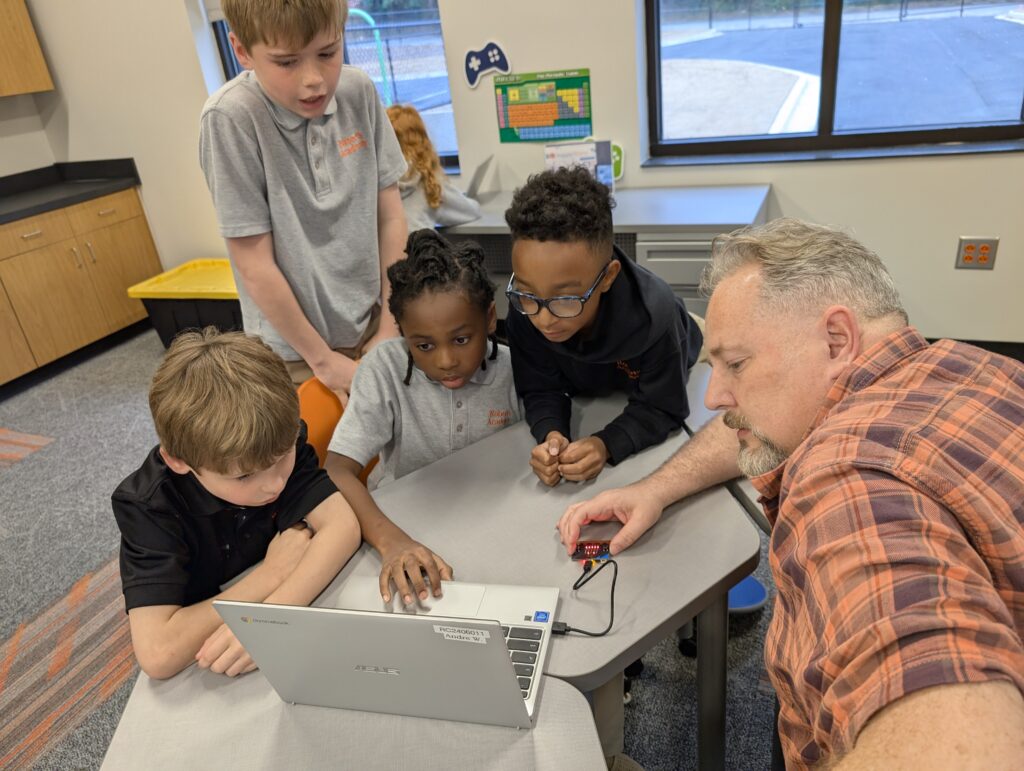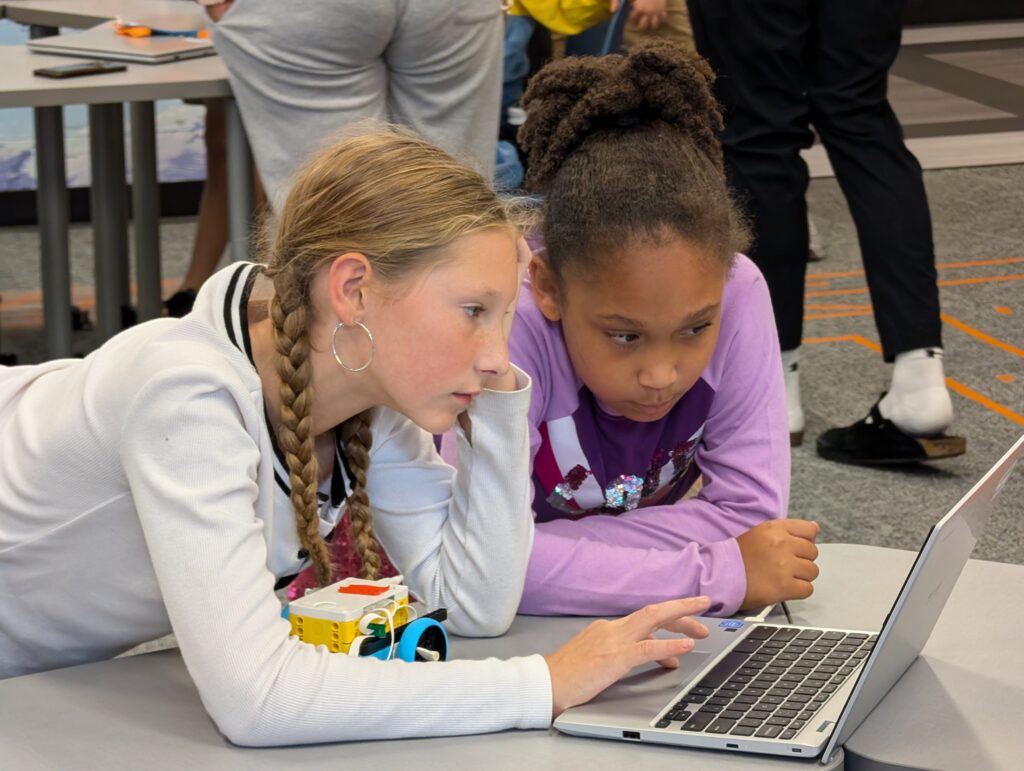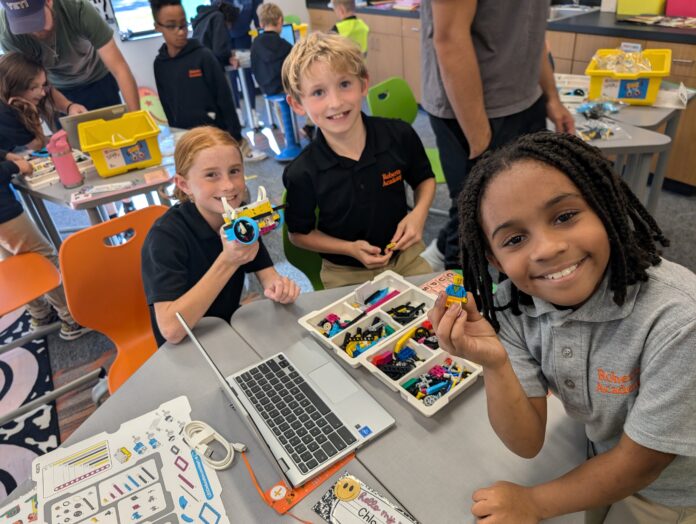
An after-school program is helping local children gain confidence while learning coding and computer skills. In partnership with Mercer University’s computer science department, “Technology Quest” launched at nearby Roberts Academy in Macon in fall 2024 and will continue during the 2025-26 academic year.
The Academy, which is affiliated with Mercer’s College of Education, is a transitional school for children with dyslexia that opened in August 2024. It currently serves students in second through fifth grades and sixth grade will be added next year.
Dr. Bob Allen, computer science professor and co-chair, said this student population has always held a special place in his heart, beginning when he served as a counselor for a summer camp offered by the school for children with learning differences where his mother worked.
Dr. Allen leads a Mercer On Mission summer program in Cape Town, South Africa, where Mercer students teach coding skills to children, as well as summer Creative Computer Camps for kids in Macon. The low-cost after-school program at Roberts Academy – held from 3:30-4:45 p.m. on Thursdays – brings computer science education to a whole new eager audience while also helping Mercer information science and technology majors fulfill a service-learning requirement.
Three Mercer students helped with Technology Quest in the fall and another three in the spring, and 15 and 18 Roberts Academy students participated, respectively.
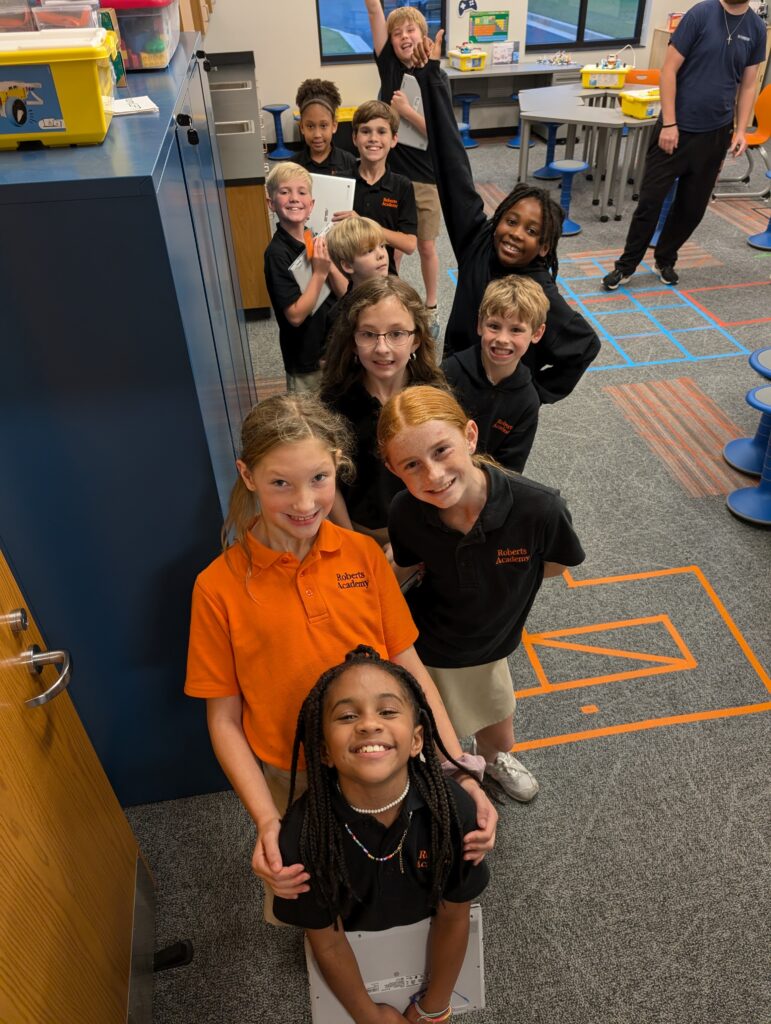
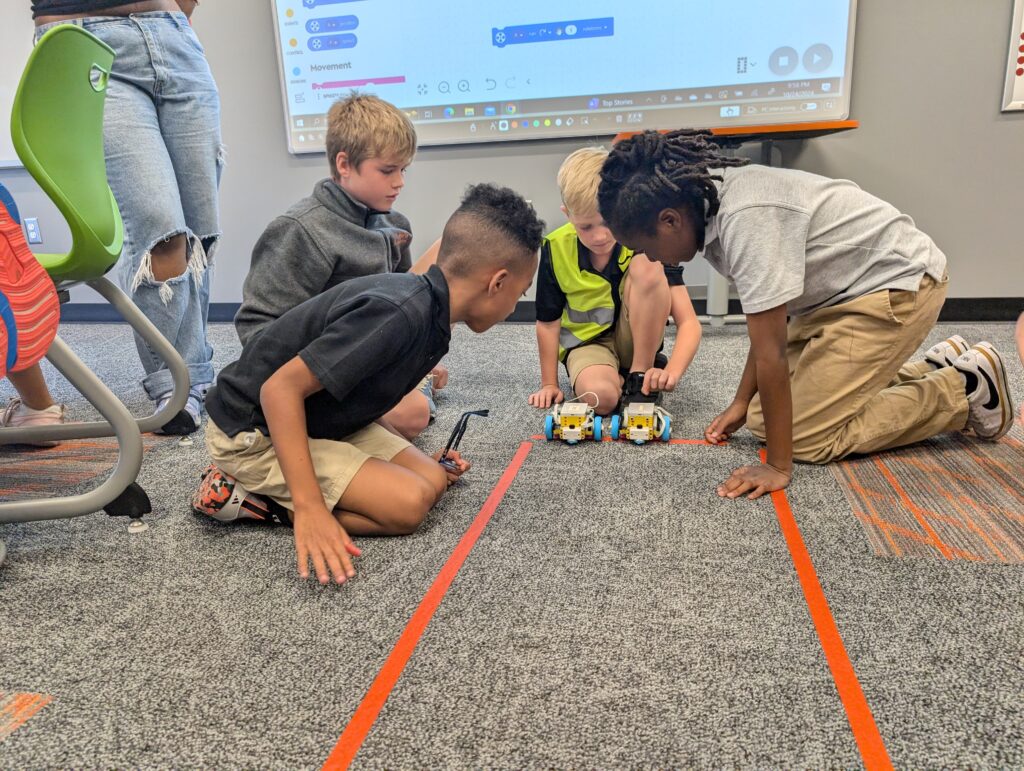
“I just get excited for how excited they are about coding,” said Caroline Grove, student information and support specialist at Roberts Academy. “They ask me every day, ‘do we have coding?’ It’s an after-school activity, and we have almost half the students staying. I hope the program continues to grow as our school grows.”
In the fall, the children were introduced to coding basics with “CS Unplugged” physical activities done without technology. For instance, they programmed a “human robot” to move across the floor. Then, they moved on to learning the coding environment Jeroo and working with LEGO SPIKE robots, five of which were donated by the Middle Georgia STEM Alliance through Robins Air Force Base’s 21st Century Partnerships.
“They’re actually building and coding and solving problems with the robots,” Dr. Allen said. “Some kids get it fast. Every week, we do see a few go wild and are ready for more.”
They finished the fall semester by designing and coding robots to compete in a battle bot competition, which was attended by all the students and staff at Roberts Academy.
“At the end when they made the robots battle was epic to see,” said Diyanni Baron, a senior information science and technology major who helped with the program in the fall. “It was eye-opening to see how far they had come from the beginning.”
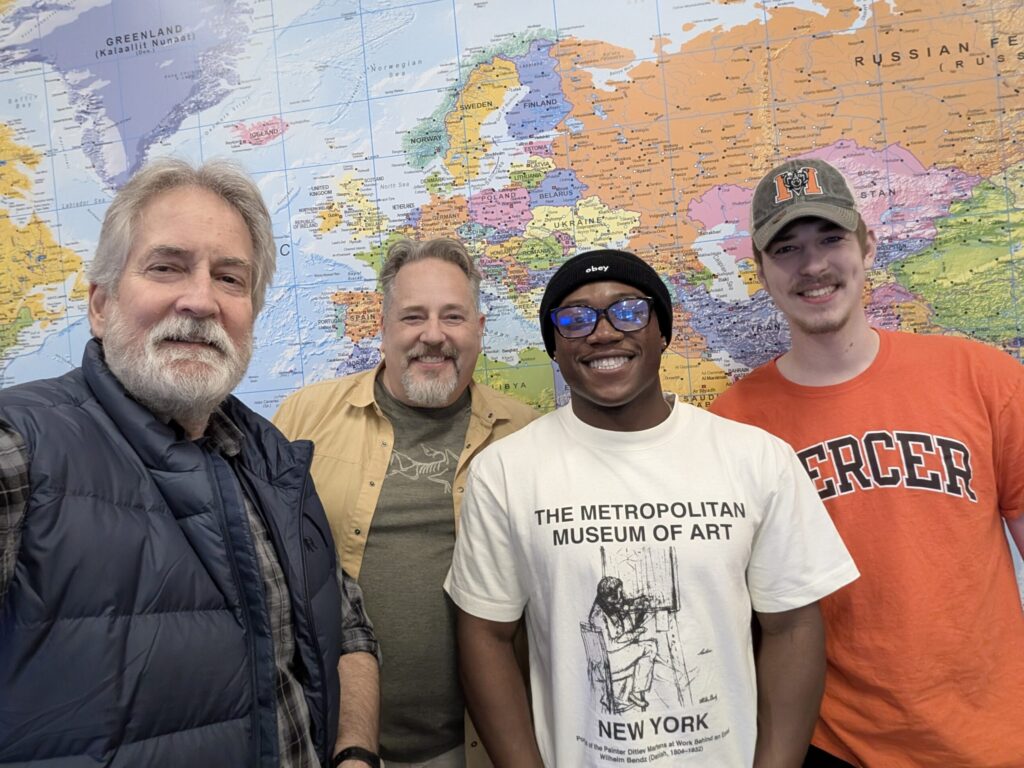
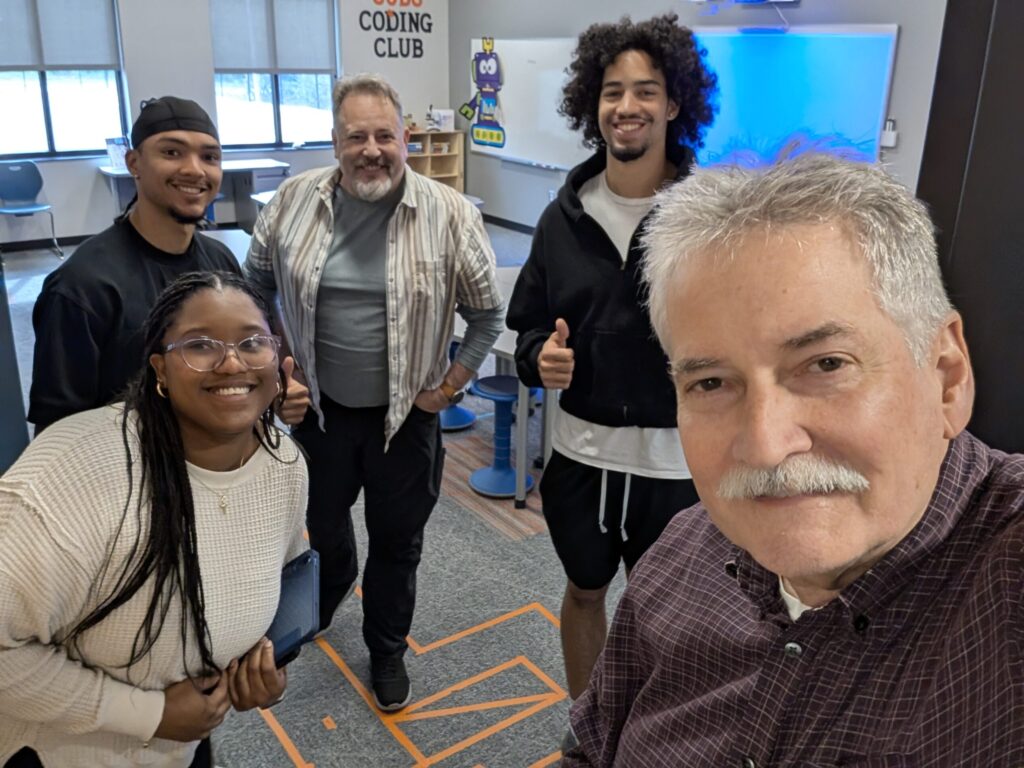
The second session also started with “CS Unplugged,” and this time featured activities where students wrote and decoded secret messages. Then, they worked with Microbit coding devices and Maqueen robots. By the end, they were sending encrypted messages to robots across the room through these devices. The Mercerians also presented a cybersecurity lesson one afternoon.
“I really liked that you could code robots and how hands-on it was,” said Henry Dickson, a fifth-grader at Roberts Academy. “I liked that the teachers didn’t do things for me and let me try things on my own.”
Dr. Allen said he loved seeing the Mercer students share their knowledge. Teaching coding was brand new for some of them, while others, like Matthew Coburn and Grant Hamilton, already had some skills from participating in the 2024 trip to South Africa.
Coburn, a senior cybersecurity and information science and technology double-major who helped with the program in the fall, said he enjoyed teaching the Roberts Academy kids, and the experience made him even more passionate about cybersecurity and robotics.
“A lot of them in the very beginning weren’t fully bought in because they thought it was going to be another boring after-school program their parents were making them do. But when we got into the robots and stuff, they were all over it,” said Coburn, who is also working on his master’s degree in cybersecurity. “Through it, they realized how fun coding can be and how exciting a career path in coding can be.”
Coburn said an older kid taught him robotics when he was growing up, which sparked an interest that set him on his career path. He said the after-school program is an opportunity for him to leave a lasting impact in the same way.
Hamilton, a senior information science and technology major, served in the U.S. Air Force for 10 years before retiring last spring. He said his favorite part of being in the military was serving as an instructor, and his experiences through Mercer On Mission in South Africa last summer and at Roberts Academy this spring helped him gain new skill sets for teaching children.
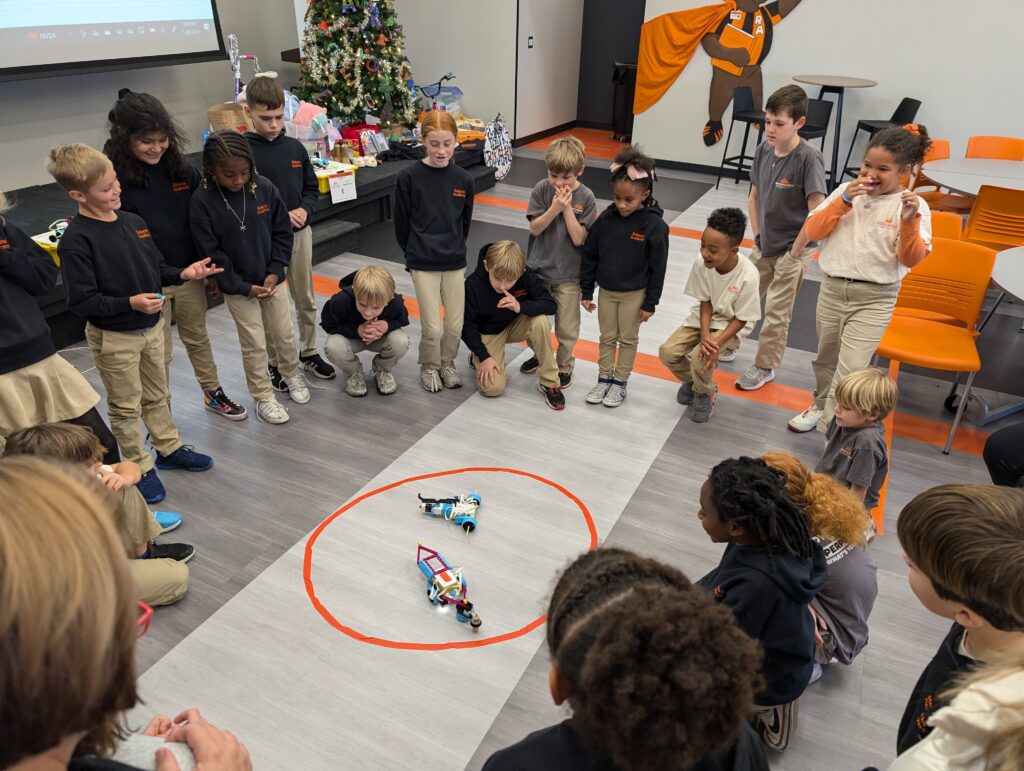
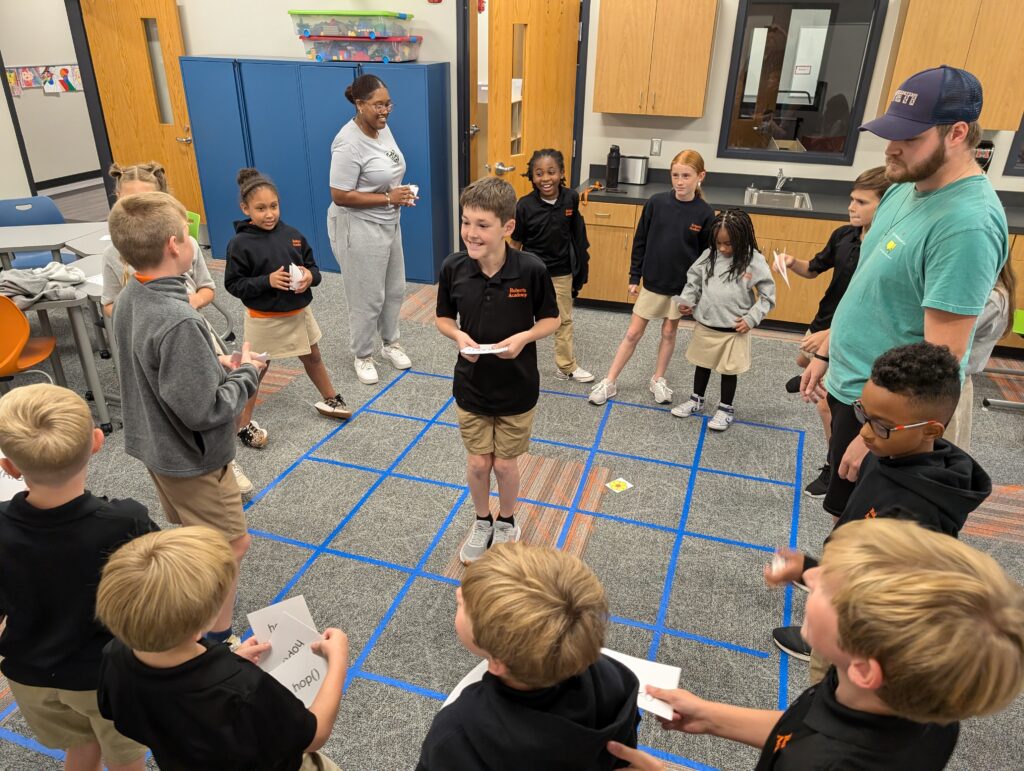
“One of the challenges at Roberts Academy is the age range. You have some challenges with the younger kids, keeping them focused,” Hamilton said. “It’s more important for them to have a positive experience than to necessarily get everything we’re teaching. I tried to find a balance between letting the older kids learn, experience and grow and letting the younger kids have a good time.”
Baron, who will stay at Mercer next year to work on her master’s degree, said it was “encouraging to see younger upcoming minds be so fascinated” by the field she’s going into. Exposing them to technology concepts at such an early age was both fun and empowering.
“It definitely piqued their interest in the tech world,” she said. “It helps them think a bit more logically. It also helps them with creativity skills. They’re gaining some insight not just into programming but engineering, figuring out how the parts work together.”
In addition, the Mercer and Roberts Academy students forged wonderful relationships through the program, Grove said.
“Just in general, being at Roberts Academy they’ve gained a lot of confidence in themselves and who they are as dyslexic students,” Grove said of her students. “Being in coding, they are more confident to take on more challenges and risks, and it ends up paying off. The skill set of collaborating with peers and problem solving, I’ve seen our students grow a lot.”
